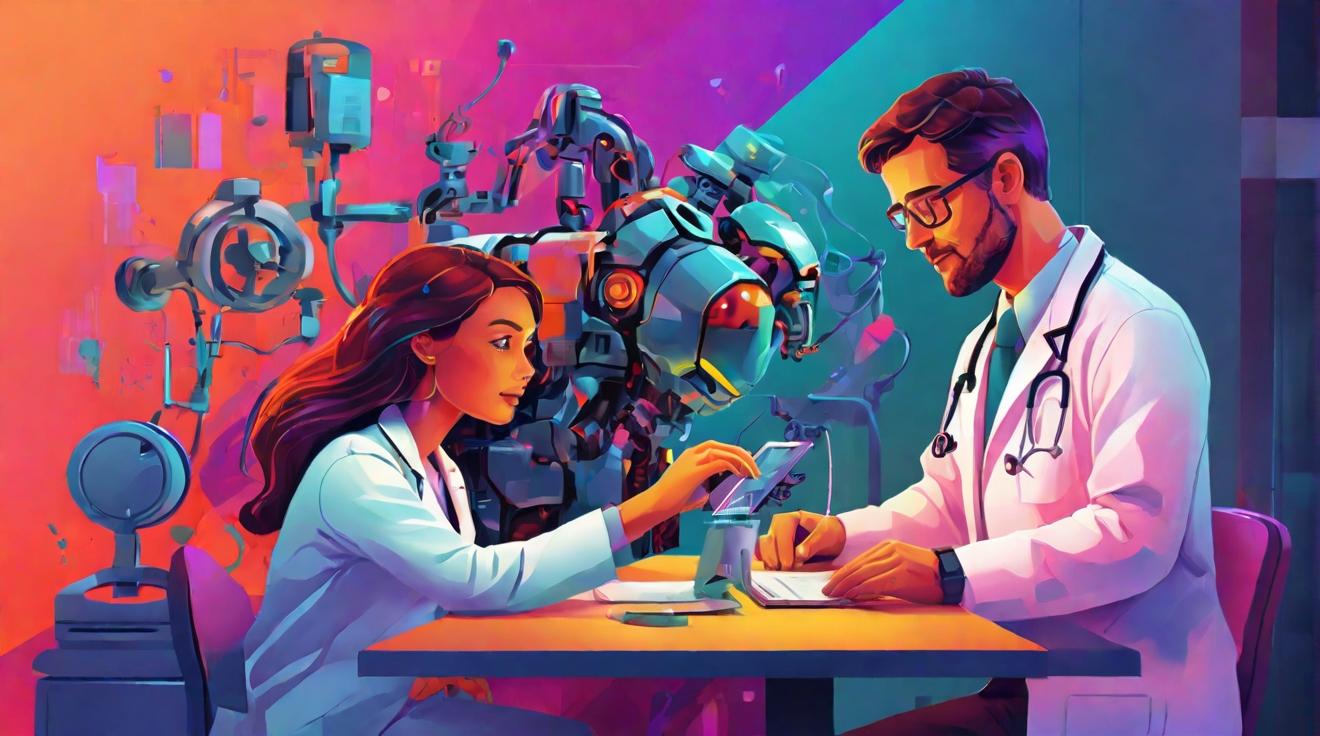Revolutionizing Healthcare: The AI Paradigm Shift
Advances in artificial intelligence (AI) are poised to transform the healthcare landscape, signaling a significant shift in how medical decisions are made. Current surveys among physicians highlight a nascent adoption, revealing AI's involvement in approximately 10% of clinical decisions. But as technology edges closer to the heart of healthcare, how do patients perceive this digital incursion into their medical care?
A recent survey sheds light on patient sentiment, revealing a cautious optimism. A narrow majority acknowledges that, when used judiciously, AI has the potential to enhance healthcare delivery. Yet, this optimism is tempered by pronounced concerns. Foremost among these are fears of misdiagnosis, breaches of confidentiality, reduced face-to-face time with healthcare providers, and the specter of rising healthcare costs.
Proponents of AI in healthcare tout its potential to address enduring challenges within the system. They advocate for AI's ability to improve care outcomes, efficiency, and productivity; offer predictive insights; and expand access to healthcare services. Despite these potential benefits, public opinion remains divided, underscoring a consistent apprehension, especially regarding the delegation of treatment decisions to AI.
The discomfort extends to specific applications of AI in healthcare, with a significant percentage of people uneasy about AI-driven diagnoses devoid of human explanation. This sentiment varies depending on the clinical context, with greater acceptance for AI's role in diagnostics over its involvement in communicating serious health conditions like pneumonia or cancer.
Interestingly, amidst these concerns, a segment of respondents recognize AI's potential to minimize human error in healthcare. However, opinions are split on whether AI could mitigate racial and ethnic biases in the delivery of healthcare services.
The exploration of AI's role in healthcare naturally raises questions about its impact on the patient-physician relationship. While some envision a technology-enhanced future where AI augments this critical dynamic, others caution against precipitate integration. From the physician's perspective, the imperative of preserving the human elements of healthcare — personal interactions, empathy, and understanding — remains paramount.
As AI continues to make inroads into healthcare, the debate intensifies around its potential to either significantly improve or inadvertently harm the sector. Central to this discussion are concerns regarding accuracy, privacy, cost-effectiveness, and the preservation of personal touch in medical care. The integration of AI into healthcare, therefore, emerges as a complex narrative of potential and peril, demanding a nuanced understanding of its role in advancing patient care and system efficiency, while safeguarding the fundamental principles of medical practice.
Analyst comment
Neutral news.
As an analyst, the market for AI in healthcare will likely experience steady growth as the technology becomes more integrated. However, there will be a need for careful implementation and addressing concerns around accuracy, privacy, and cost-effectiveness to gain full acceptance from patients and physicians.













